Court, Credit, and Capital
Seventeenth-century Amsterdam was a city of innovations. Explosive economic growth, the expansion of overseas trade, and a high level of religious tolerance sparked great institutional, socio-economic and legal changes, a period generally known as 'the Dutch Golden Age'. In this book, Maurits den Hollander discusses how insolvency legislation contributed to the rise of a modern commercial order in seventeenth-century Amsterdam. He analyzes the procedure and principles behind Amsterdam's specialised insolvency court (the Desolate Boedelskamer, 1643) from a theoretical perspective as well as through the eyes of citizens whose businesses failed. The Amsterdam authorities created a regulatory environment which solved insolvency more leniently, and thus economically more efficiently, than in previous times or places. Moving beyond the traditional view of insolvency as a moral failure and the debtor as a criminal, the Amsterdam court recognised that business failure was often beyond the insolvent's personal control, and helped restore trust and credit among creditors and debtors.
- Introduces complex legal developments in a fluent and accessible narrative, featuring case studies and examples from primary sources
- Explores the impact of seminal developments in insolvency legislation on both individuals and society
- Brings to life the relationship between creditors and debtors in the economic hotspot of the Dutch Golden Age
Reviews & endorsements
'Amsterdam's 'golden age' has long fascinated economic historians. They have undertaken close studies of its unique organizations, e.g., the Wisselbank and the Vereenigde Oostindische Compagnie, in an attempt to explain the tremendous growth and vitality of the city and its surrounding region. Maurits den Hollander's important study of Amsterdam's Desolate Boedelskamer makes a significant contribution to this literature. By documenting how a specialized legal organization could alter the resolution of insolvency cases, promoting composition rather than dissolution and therewith engendering trust rather than conflict, it raises profound questions about the function of economic institutions. This book should be required reading for scholars in the field.' Thomas Max Safley, Professor Emeritus of History, University of Pennsylvania
'This book is simply superb. Den Hollander offers a study of insolvency in the booming Dutch economy of the seventeenth century that is both a first-rate piece of socio-economic analysis and a consummate exercise in social history.' James Q. Whitman, Yale Law School
Product details
August 2025Hardback
9781009631051
312 pages
229 × 152 mm
Not yet published - available from August 2025
Table of Contents
- Acknowledgements
- Introduction
- Part I. Context:
- 1. Citizens and institutions
- 2. Morality and insolvency legislation
- Part II. Procedure and Staff:
- 3. Procedure
- 4. Staff
- Part III. Insolvents:
- 5. The accord
- 6. Cessie van Goede
- Appendix 1 – Databases Accords
- Bibliography.

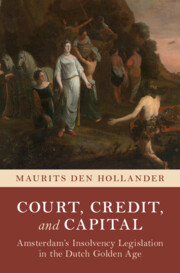
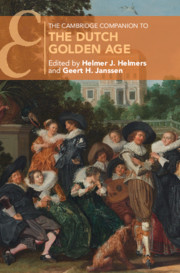
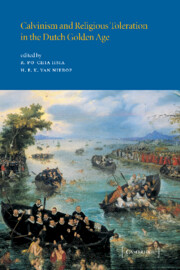
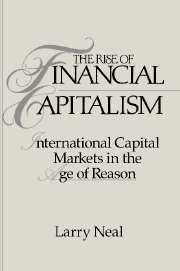
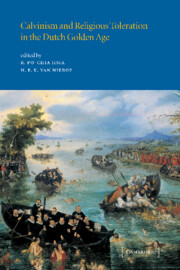



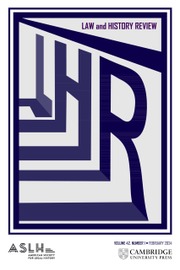
.jpg)